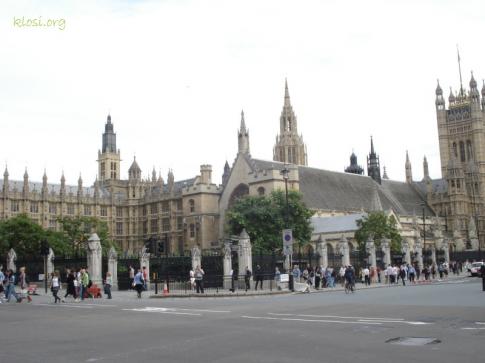The Leadership of Cities

To meet the complex challenges of the twenty-first century, the strengths and expertise of every level of government must be leveraged...
Georgios Kaminis * & Erias Lukwago *
Marvin Rees *
To meet the complex challenges of the twenty-first century, the strengths and expertise of every level of government must be leveraged. That is why cities have emerged as leaders in the effort to tackle issues like climate change and migration.
ATHENS/KAMPALA/BRISTOL – After the 2009 United Nations Climate Change Conference in Copenhagen concluded without an agreement on climate action, mayors around the world developed their own innovative solutions. More recently, as national politicians have fomented false fears about refugees and immigrants, local leaders have taken responsibility for welcoming, protecting, and integrating millions of newcomers. When it comes to tackling the complex challenges of the twenty-first century, cities have emerged as leaders.
Past and current initiatives have made our cities stronger and more united, just as neglecting the challenges we face surely would have weakened and divided them. It has also given us important insights into what works best – insights that policymakers at the national and international levels would do well to take on board.
If we are to meet the challenges our world faces, we must capitalize on the strengths and expertise of every level of government. That is why, over the last two years, hundreds of cities have played an unprecedented role in developing two non-binding agreements: the Global Compact for Safe, Orderly, and Regular Migration and the Global Compact on Refugees.
Both agreements are informed by the simple, self-evident truth that no country or city can go it alone. And both serve as roadmaps for how countries and communities can work together on managing international migration and forced displacement.
With the overwhelming majority of migrants – including 58% of refugees – residing in cities, municipal-level efforts are vitally important. As mayors who represent cities of origin, transit, and destination, we have a shared interest in cooperating to ensure that migration is safe, orderly, and humane, and that refugees are protected. To be effective, such cooperation must include engaging in migration diplomacy and policymaking at the regional and international levels.
This weekend in Marrakesh, on the eve of the historic Intergovernmental Conference on the Global Compact for Migration, the mayors of eight cities – Los Angeles, Montreal, Milan, Athens, Bristol, Amman, Kampala, and Freetown – will launch the Mayors Migration Council to support local authorities’ efforts. The Council will ensure that mayors have a permanent and powerful voice on the international stage, so that policies are grounded in the realities they and their cities face.
The Council will also help cities to elevate successful migration-related practices that can serve as models for action around the world. Networks like United Cities and Local Governments, the Global Parliament of Mayors, and Cities of Migration can help by facilitating the sharing of knowledge and innovation among local governments. Acknowledging that this work extends beyond migration alone, the Council – in partnership with C40 Cities – will seek to tackle the intertwined challenges of migration and climate change in cities.
This effort is all the more urgent in view of the toxic political discourse on migration. Too often, national politicians talk about refugees and immigrants not as humans, but statistics – an approach that enables them to justify inaction. Worse, many politicians now use immigrants as scapegoats. This cynical strategy has led to a rise in hate crimes, discrimination, and a deepening distrust not only among people, but also of government.
In our cities, migrants are anything but abstractions. They are our neighbors, schoolmates, and co-workers, delivering essential services and connecting us to the world through their histories and networks. Migrants bring unique perspectives and new ideas that add to our society, rather than taking anything away. They help our cities foster new relationships and build bridges within cities and with other countries. They diversify our workforce and strengthen our economy. We need migrants as we grow and evolve.
Successful cities take individuals from diverse backgrounds, enabling them to connect and supporting them in ways that capitalize on their strengths and compensate for their weaknesses. Residents of the city of Bristol, to name one example, represent at least 45 religions and 180 countries of birth, and speak 91 different languages. They share public transportation, health facilities, and social services, as well as triumphs and tragedies.
Serving diverse populations is a practical challenge; but it is also an ethical one. If we do not meet it, we risk dividing our residents and making our cities ungovernable. If we do, we will unlock the creativity and dynamism that are the keys to success in the twenty-first century.
In recent weeks, a dozen or so countries have withdrawn from the Global Compact for Safe, Regular, and Orderly Migration, often using specious arguments about how this non-binding agreement undermines their sovereignty. As local leaders, we do not have the luxury of ignoring the challenges we face. In Marrakesh and beyond, we will work with fellow leaders – from national and local governments, from civil society and faith groups, and from international organizations – who are not afraid to confront reality, and make it better. /project-syndicate
* Georgios Kaminis is Mayor of Athens.
* Erias Lukwago is Mayor of Kampala, Uganda.
* Marvin Rees is Mayor of Bristol, United Kingdom.




 del.icio.us
del.icio.us Digg
Digg

Post your comment